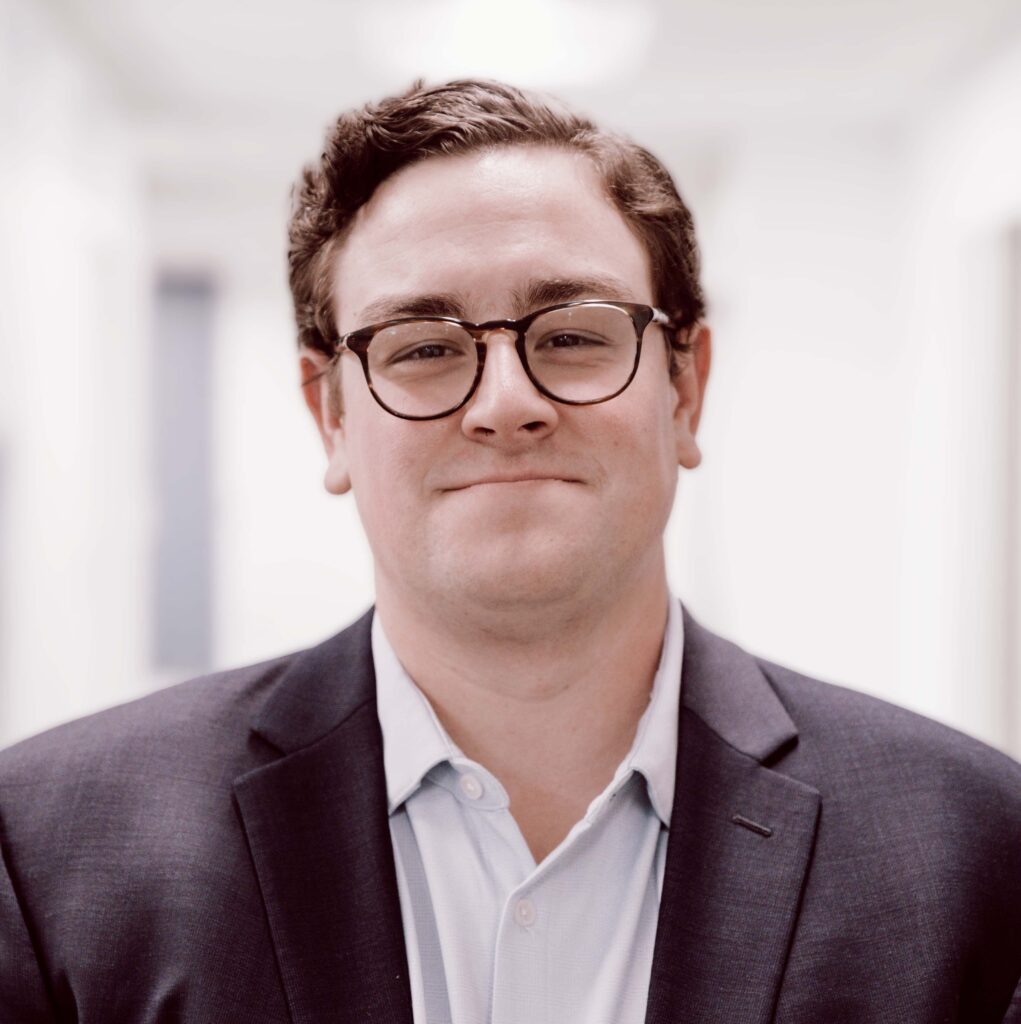Identifying an interim chief financial officer can be tedious, if not expensive. Companies that don’t know what they’re looking for when they begin their search could spend large sums of money on headhunters and recruiting firms.
They can also lose valuable time interviewing unqualified candidates.
When hiring an interim CFO instead of a permanent replacement, key considerations include timeline, need-specific criteria and keeping an eye out for red flags.
As a trusted resource for hundreds of private equity firms and thousands of portfolio and independent companies, BluWave has exclusive insight into what makes a home-run selection vs. someone who will send you back to the drawing board.

What is an Interim CFO?
An interim chief financial officer is a temporary, full-time executive a company hires when it’s without a full-time CFO. We’ll talk more later about the situations in which you would hire a temporary CFO.
To better “define interim CFO,” we asked BluWave’s Vice President of Finance and Accounting Justin Scott.
“I think the interim CFO role really depends because it’s really got to be scoped well going into it because you could have an interim for different reasons,” Scott says. “If you’re going to take the interim route, you want to make sure that you have an interim that has the specific skillset you need for the reason you need an interim.”
When it comes to interim management, finding the right interim CFO is important for your company’s financial operations to run smoothly during transition periods. Whether you’re a small business seeking immediate support or a growing company requiring specialized financial expertise, hiring an interim CFO while searching for a permanent candidate can provide many benefits.
“What we’ve heard is, you’re either finding a full-time person in less than 30 days in the first slate of candidates or it’s going to take five or six months,” BluWave managing director Houston Slatton says.
Identifying a candidate experienced with the right industry, company size and revenue models, for example, takes time.
CASE STUDY: Interim CFO Transforms a Physiatry Powerhouse in Flux, is Hired Full-Time
“You may get lucky, but you’re probably not going to. And so you need to plan to not have a full-time person in that seat for five or six months,” Slatton adds. “You don’t want a B-minus player because they’re going to be a key member of the executive team.”
There are several situations in which you might look for an interim CFO.
“You could have an interim CFO simply as a stopgap. You lost your prior CFO unplanned for whatever reason. And ‘I just I got to fill a role until I find my long-term solution,’ or I could have an interim CFO to prep for sale,” Scott says. “So it really depends on the scope of the interim CFO.”
Many businesses turn to interim CFO services and fractional CFO services to bring in experienced professionals on an interim basis. Here are some of the more common scenarios where interim CFOs are hired.
Trial Basis
One benefit of a short-term hire is that you can test them in the role before committing full-time. This makes it easier to transition a strong candidate to full-time if they are a good fit. It also means giving someone an opportunity without immediately making a larger investment.
“It is very easy to interview very well and then the person who shows up is not who you interviewed,” Scott says. “That’s very critical in the CFO role because if you get a bad CFO or somebody that can talk the lingo but not deliver the activity, you can get yourself in a lot of trouble real fast.”
Interim-to-full-time transitions often happen after a company has been recently acquired. What began as a one- or two-quarter stint can easily transition to a permanent role if the person has integrated well, especially with the CEO.
Stopgap
Sometimes, companies need more time before choosing a permanent CFO. But they don’t want to leave such a crucial role vacant for months, either.
This is another opportunity to bring in someone with interim experience to bridge the gap between the prior CFO and your long-term solution. Hiring a part-time CFO, virtual CFO, or even an outsourced CFO helps companies navigate complex financial challenges while waiting for a full-time CFO position to be filled.
“Given the importance of the CFO role, it’s really hard to be without one unless you have an amazing controller,” Slatton says.
Some people make a career out of temporary assignments, putting them top-of-mind for recruiters in these situations. One such person in our network talked to us about the benefits of an interim CFO.
“I think the primary purpose is to just stabilize everything,” says the executive, who spent eight years in PE before focusing on temporary assignments. “But then also learn the nature of the operations and the backbone of the company, and how it operates and if changes need to be made.”
CASE STUDY: Interim CFO: Complex Situation for Rapidly Growing Healthcare Services Business
At BluWave, we have seen that the end of the year is a popular time to hire an interim CFO.
Historically, about 60 percent of the interim CFO projects we have sourced were in Q3 and Q4.
“The last thing a CEO wants to do is be approaching an end-of-fiscal-year and not have somebody that’s going to drive their financial close right for the year,” Scott says. “That could be a really scary place to be, where earlier in the year you’ve got time to bounce back.”
Post-Acquisition Value Creation
Interim CFOs also focus on making a company as valuable as possible once it’s been acquired. This is especially important if someone in a lower-level position, such as a controller or an accountant, previously led finances.
“One purpose of an interim CFO is to just stabilize everything,” says Hunter Eagan*, an interim CFO from BluWave’s invite-only network. “But then also learn the nature of the operations and the backbone of the company, and how it operates and figure out whether it’s going to meet the demands of the new private equity owners, or if changes need to be made so that the company can produce the information that the private equity owners are going to want to see.”
Slatton says companies often use large amounts of debt to finance their purchases, opening the door to new accounting situations.
“Now they need somebody to handle all the bank reporting and covenant testing for the lenders and putting in real GAAP,” Slatton says. “As soon as they have a loan like that, they suddenly have to do all this financial reporting. That will be a new process and it hits quickly after they close on the business.”
In addition to what Slatton shares, other key value-creation tasks may include:
- Developing strategic plans
- Building up the finance team
- Financial restructuring
- Establishing KPIs
- Performing audits
- Forecasting
- Cost management
- Transaction processing
- Closing the books
- ERP implementations
Prep for Sale
A short-term finance executive can also be a great resource when a company is preparing to be sold. After holding a company for 3 to 5 years, PE firms typically look to sell it to a larger PE firm or public company.
Merger and acquisition experience is especially important in private equity; whether it be post-merger integration or prep for sale, M&A experience is key.
Here are some other ways interim CFOs can help companies prep for sale:
- Performing legal and external reporting to regulators
- Management reporting to internal stakeholders
- Prepping the data room
- Responding to diligence requests
What Types of Companies Do Interim CFOs Work In?
Any company that needs a temporary finance leader or financial expert at the C-suite level can use an interim CFO.
Private equity firms often want to find temporary finance leaders before, during or after the sale of a portfolio company.
But, private and public companies can also benefit from strong finance and accounting leadership.
At BluWave, this is one of our most in-demand roles year-round as companies seek to professionalize their finance function, ease a transition, recover from a crisis and more.
Interim Chief Financial Officer Recruitment Criteria
When evaluating CFO candidates, use the same measuring stick for each one. BluWave founder and CEO Sean Mooney, who has more than 20 years of PE experience, developed the PE-grade CFO scorecard for this purpose when looking for full-time CFOs.
Many of the same principles can be applied to the interim CFO executive search process. Having a baseline allows everyone involved to make more objective evaluations.
“Assign different parts of your scorecard to relevant key team members so you can systematically measure candidates against each of your criteria while getting a range of inputs from across your organization,” Mooney explains on the Karma School of Business podcast.
Companies often contact someone like BluWave for help when sourcing candidates or interim executives. We then present them with two or three candidates tailored to their needs. One of those candidates typically emerges as the leading choice, at which point they’ll continue interviewing with other executives and, when applicable, the PE firm.
While you can put whatever criteria you like on your scorecard, we have a few recommendations for the interim leader process.
READ MORE: Should I Hire an Interim CFO or a Fractional CFO?
Company Size
Experience at a larger company vs. a smaller one isn’t good or bad; it’s just different.
We often see, for example, executives who traditionally spend time at larger organizations struggle to move to smaller ones.
“CFOs that come out of those portfolio companies or come up through the ranks have a very different mindset than one that comes up through the Fortune 500 world,” Scott says. “It’s a little bit more of the rolling up the sleeves type thing, right? The PE-grade CFOs, that’s just expected because you have to be engaged in everything because instead of having 500 people on your finance and accounting team, you might only have two to five.”
CASE STUDY: Temporary Finance Leader for a Creative Digital Agency
Mooney recalls multiple past appointments that didn’t work out for that reason.
“I’ve had so many failures trying to bring in big-name large company CFOs who just couldn’t function at a lower-middle market size company,” he says. “It wasn’t that they weren’t great. It was that they just weren’t a good fit for a smaller-company environment.”
Relevant Industry Experience
This is an important factor for companies with unique or complex accounting needs or those within highly regulated industries.
A strong candidate should be able to articulate relevant industry experience in the interview process. Whether manufacturing, software, healthcare or another area, the interim CFO should be entering familiar territory from day one.
To evaluate this point, Scott says we ask candidates: “What did you do in that industry to make yourself stand out or to prove that you understand that industry and how it works?”
Capital Structures
Mooney says interactions with lenders and investors go more smoothly when someone has experience operating under similar capital structures.
“This is particularly true when we think about having done the balance sheet entering a public company operating environment,” he says.
CASE STUDY: Interim CFO Urgently Needed For Prep For Sale Process
Internal vs. External
While uncommon, there are times when the ideal interim CFO is already on your team.
“It’s going to be a more seamless transition with somebody that comes internally,” Slatton says. “If you have somebody really good that you like that’s internal, use them just because it’s going to be easier.”
More often, though, companies bring in someone new.
“Some of those higher-level kind of CFO skills, you’re not going to find on an internal team,” Slatton says. “Bringing in somebody from the outside allows you to have access to a broader set of skills and brings a fresh perspective.”
BluWave Interim Executive Practice Manager Ginessa Ross agrees, saying it can be easier for interim CFOs to put their emotions aside and get the job done.
“They can just pick out the issues and deal with it,” she says.
How Long is an Interim CFO Assignment
Interim CFO assignments, by nature, are temporary. Interim finance roles typically last around six months, though we have seen stints as short as three months and as long as a year or more. It all depends on the situation a particular business is facing.
“Oftentimes it’s until you find the permanent and that often takes three to six months,” Slatton says. “Recently, it’s been longer, just as it’s been harder to find talent across the board.”
As Slatton mentions, a full-time CFO is named at the end of the temporary CFO’s time. Oftentimes, there’s a transition process where the eventual full-time candidate works alongside the interim to ensure a smooth transition. In the same cases, the interim CFO is hired into the same position full-time.
Hire an Interim CFO Immediately
A well-vetted interim CFO search process typically takes up to 90 days from the initial call to their first day of work.
There are times, however, when you need a vacancy filled “yesterday.” At BluWave, we provide two or three best-fit candidates within a single business day. This can cut a process that normally takes months to a few days.
“Of the several hundred PE-grade CFOs in our network, we select the top two or three choices for a company, and once the negotiation is finalized, they can get to work very fast,” Scott says.
Every candidate in the BluWave network has been pre-vetted with multiple references. And before we recommend someone to a company, they are vetted again to provide the most up-to-date evaluation possible.
CASE STUDY: Interim CFO Crucially Needed for Portco Carveout
Candidate Red Flags
As we already mentioned, many candidates can talk the talk but not walk the walk.
Here are some signals that will help you discount the duds from the outset.
Salary Disparity
If someone is accustomed to making significantly more money than you can pay, you might want to skip them. While they may claim to be interested, they could use the interim opportunity as a stepping stone to a higher-paying role, leaving you looking for another finance executive sooner than expected.
“In my experience, rarely will the candidate take a meaningful discount and not start looking for the best next role sooner than later,” Mooney says. “You don’t want to be a bridge to somewhere else.”
Geography
Another important consideration is location. Or, in some cases, relocation.
While the pandemic accustomed companies to remote workforces, there’s value in having your financial leader on-site, even for a few days a week.
In high-stress situations like turnarounds, restructurings or building a finance team from scratch, interim CFOs need to earn trust as fast as possible. This is difficult to achieve when working remotely.
“Time and time again, we’ve seen projects get down to the finish line, and at the end of the day, they say, ‘Well, I’m not really ready,’ or ‘We’re not going to move our family,’” Mooney added.
If you’re considering someone who’s out-of-market, confirm early on that they’re willing to work from your office for most of the assignment if this is important to you.
Short Stints
While less of a concern for temporary assignments, beware of candidates who routinely spent only a year or two in full-time roles.
The exception would be someone like our interim CFO veteran, who spent years in full-time roles before shifting exclusively to short-term stints. Candidates like him understand how to make the most of a three- to six-month opportunity.
“I think it’s very valuable to have someone who knows all the things that need to get done,” Eagan says. “Getting everything set up, and then making sure that the management team and the private equity owners have a good open line of communication, and aren’t afraid of one another. I think an interim CFO is in the perfect spot to facilitate that communication.”
Employment Gaps
Mooney says it’s normal for candidates to have “bumps in the road.” No one’s career is a downhill ride on the yellow-brick road. Hiccups should be the exception, though, and not the rule.
“Be aware of large gaps in employment. Look for track records of being recruited to bigger and better next roles versus leaving roles without a bird in hand,” he says.
If a candidate consistently leaves full-time jobs without having the next one lined up, dig deeper into why that is, or discount them altogether.
Pointing Fingers
Talk to each man and woman you interview about difficult times in their careers.
If they’re quick to pass the blame, you can expect them to act likewise once hired. You want someone who takes responsibility, not assigns it.
“Look for candidates to own the results and ultimately share what they did to take action and improve the situation,” Mooney says. “Be aware of candidates who repeatedly blame circumstance and fate.”
Questionable References
BluWave runs multiple reference calls before presenting a candidate to a potential client. Ross says this is a great way to weed out unqualified options.
“It’s a value prop that we have for our clients,” she says. “We always ask for references, and if they’re unwilling to send them, we take that as a red flag and we are unwilling to work with them from there.”
Passive Work Habits
If a candidate doesn’t have a history of getting involved in the day-to-day details, they’re probably not going to accomplish much in a three- to six-month assignment.
“People aren’t looking for an interim executive to come in and bark orders. Anybody can do that,” Scott says. “They’re looking for somebody to come in and really get engaged, understand what’s going on in the business, figure out what’s not working in the finance and accounting department and get that aligned with the business needs as quickly as possible. And you can’t do that sitting back.”
That’s why a candidate needs to express past accomplishments with details.
Bad Cultural Fit
“Every CFO that we’re going to present is qualified,” Slatton says. “It’s more about, can they fit well with the organization and are they going to partner well with the PE firm?”
Ross agrees, saying there are many qualified finance executives for hire. The more important question, though, is how well they can adapt to a new situation.
“If they can’t earn respect and get people on board with the company mission, they’re not going to be able to move the company in a positive direction,” she says. “You can be the most experienced executive in the world. But ultimately, if you butt heads with the person you’re supposed to be working with, it’s not going to work out.”
Lack of Experience
Ross, who onboards interim CFOs to the BluWave network, says lesser-known candidates can embellish their background to land a prized opportunity.
That’s why, she says, we ask probing questions before recommending them to clients: “Who have you worked with? When have you worked with them? And how have you worked with them? I think those are very important.”
When candidates see interim opportunities as a chance to build their skillset, it’s a recipe for disaster.
“An interim CFO job probably isn’t the way to learn new types of business models because interim CFOs need to jump in and know what they’re doing,” Slatton says. “Don’t try to think of an interim opportunity as a stretch opportunity.”
Selecting the right interim executive can be difficult, but with the right evaluation process and support, you’re more likely to hire the best person much faster.
Mooney recommended in CFO Magazine eight ways to optimize the process.
Creating an interim CFO scorecard can be a great way to kick off your search process, but don’t hesitate to contact us for help.
“Don’t overly weigh your assessment on any one criteria,” Mooney adds. “When using a structured scorecard-based approach that includes a comprehensive assessment of a candidate’s competencies, skills, values, intellect, personality and real-life case-study testing, I think you’re going to find that your success rates are going to go way up.”
*Privacy is important to us. While the source and company name have been changed, these are real quotations from a real service provider in the BluWave Business Builders’ Network.






















